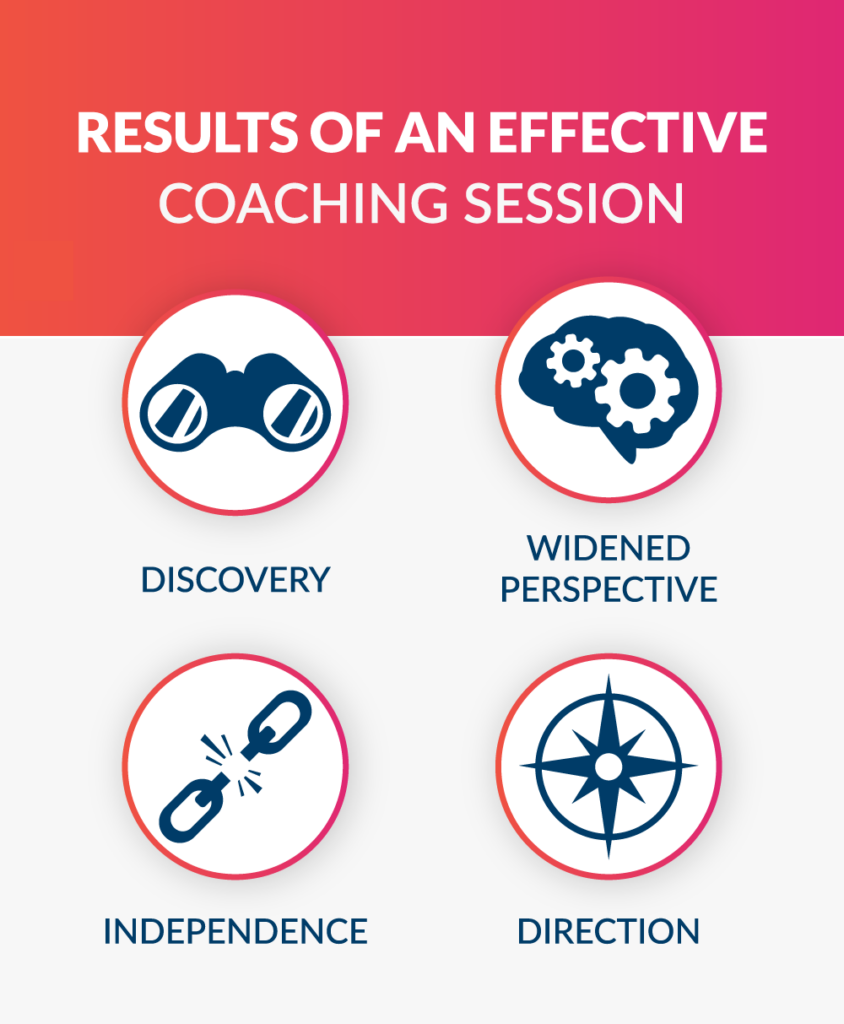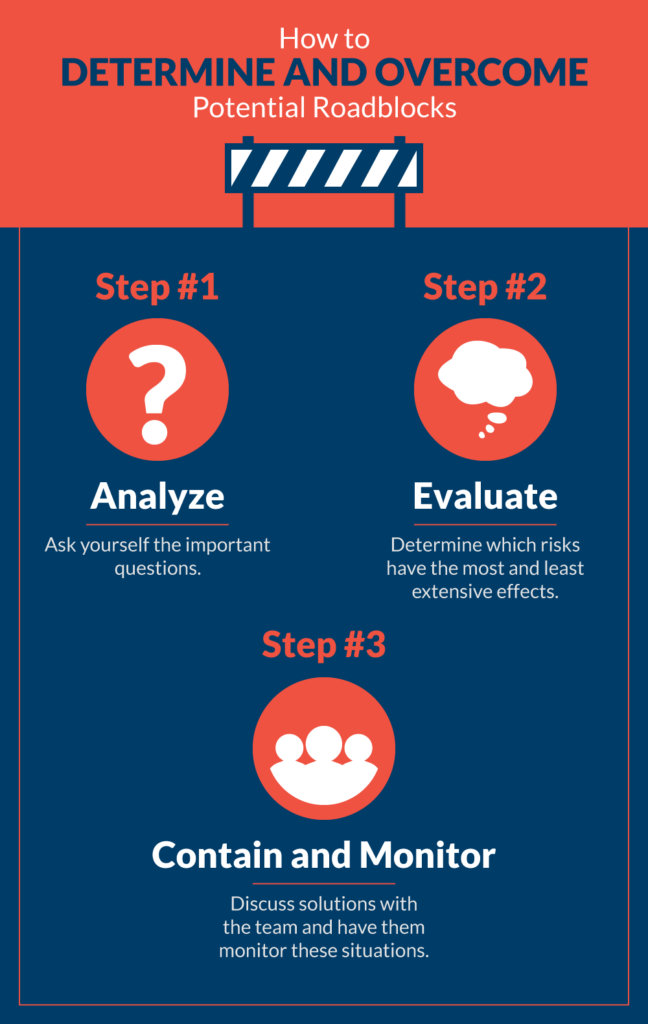Ready for results? If you’re an executive looking to improve your company’s bottom line, the first step to change is answering the right business coaching questions.
You may be used to being the one who asks the questions, but a seasoned business coach will turn the tables. It’s not what they ask that matters, but how they ask it.
Executive coaches must know how to craft questions that can encourage a deeper knowledge of yourself and your business — to inspire those “aha” moments of sudden clarity and insight. When business coaching questions are posed appropriately, it’s possible to stimulate real motivation for change.
You must get beyond solving basic problems for your business. Your coach needs to utilize effective questioning to make you think and reflect deeply about what you’re doing. These questions often lead to bigger questions about your company and its purpose.
You may discover that your answers will start a process that could end with a radical change to your company’s foundation, culture, communication style, and overall performance. The best coaches will get you to consider your challenges in as many ways as possible to inspire solutions that make sense for your bottom line.
That’s why you first need to know if you’re ready for results. When heading to a coaching meeting, you and your team need to be prepared to answer the big business coaching questions. You may feel uncomfortable at first, but it’s important to stay open to thought-provoking discussions and ideas from your coach.
It doesn’t matter if you’re leading a small, medium, or large company. Being guided by the right questions is critical to a successful coaching experience — and bringing out the best in your business.
So, What Are the Right Kinds of Business Coaching Questions?
Before getting into some examples of questions you may expect from a seasoned business coach, let’s look at the power of framing questions effectively. Certain questions or ways of asking them can hinder clarity and discovery.
For example, think about how you respond when someone asks you a “why” question:
- Why would you do that?
- Why do you think that?
- Why did you make that decision?
It’s common for people to be on the defensive in those situations. Starting questions with “why” implies subtle judgment and can seem confrontational, whether it’s intended or not. Often, it feels accusative, making people reply (in a panic) with the first thing that comes to mind. That’s rarely insightful.
Instead, an executive coach — or any leader — should be asking “what” or “how” questions:
- What might have brought you to that decision?
- What options do you have?
- What might be the results of those options?
Being able to ask the right questions means the difference between a productive learning experience and what can feel like an interrogation.
By utilizing this approach, executive coaches learn to understand their clients on a level very few others ever will. And more importantly, executives can effectively reach and surmount the crux of any issue.
The goal is to ask several “what” or “how” business coaching questions until you arrive at the breakthrough moment. How do you know you’ve reached a breakthrough? You think, “You know what, I never thought of it that way!”
The Goals of Good Business Coaching Questions
You want results, right? Here’s what that looks like for an effective coaching session.

Discovery
You can uncover and examine habits and patterns of behavior that either get in your way — or are underutilized.
Widened Perceptions
Your regular thinking is challenged until you are nudged out of your comfort zone and can assess all angles and new viewpoints.
Independence
You’ll become self-reliant and less dependent on your coach, putting you in a position to make the best decisions independently.
Direction
You’ll be able to identify what you need to focus on, the best course of action, and the logical next step to set you on a successful path.

10 Examples of Effective Business Coaching Questions
1. What is your vision for success?
“Success” is a tricky word by nature, as its definition changes from person to person. This is the most important question your business coach can ask you. Defining success for your company puts all of your team on the same page. With such a wide possibility of definitions, getting to the answer will take some thought.
Many business coaches ask you and your team to draw a mind map of many vital parts to help you with this step. These components often consist of your targets, goals, and other similar milestones you picture for your business.
To tie these factors together, you and your team can write a strong story of your targets and goals as if you’ve already achieved them. For instance, if you aim to increase your income by 15% in the next three years, write about what you did to get there, step by step.
Doing so helps you and your team understand what it will take to scale up and reach that goal. Mentally, you’ll knock it down from impossible to entirely possible. You all place yourselves in the mindset of a company that is ready and more than capable of achieving its objectives.
2. What is your foundation made of?
Your business foundation is, fundamentally, what drives you and your team to get up and work hard every day. Without a solid foundation, your team will lack motivation, which will make them put in less-than-favorable efforts. A coach should ask you a series of business coaching questions that will shine a light on where your foundation stands.
Through this process, you should also get insight into what you need to do to achieve the goals you’ve set for it. The following questions are the most common ones you may face:
What Are Your Core Values?
Your core values are much more than catchy buzzwords. They act as a guiding compass for your business and its people and common purposes to refer to when you need to make a decision, whether small or big. Business coaches can help you uncover your core values, which often run deeper than you thought
Many businesses make the mistake of only using a few words that sound good and then failing to put these values into use. For example, if you choose words like “integrity” or “respect” but don’t explain how your company reflects those values, they may appear meaningless to your employees and your customers.
Discussing what inspires your company to make its decisions is a great starting point to discovering your values. Moreover, think about whether you and your team successfully demonstrate your chosen values daily. A company with strong core values will live and breathe them.
What Are Your Core Competencies?
Your core competencies give your business an advantage over your competitors. Reexamine your company’s skills and abilities through these business coaching questions to determine what makes you stand out and your products and services unique. Is it the high quality of your goods? Your exceptional marketing campaigns? Or perhaps your unparalleled customer service?
If you need some inspiration, take another look at your mission and vision to remember why you started your business and believed your company would succeed. You can also ask loyal customers why they choose to come back to you time and again.
What Is Your Mission?
A business coach can help clear up the difference between your company’s vision and mission — two words often used interchangeably. While a vision will define what your company hopes to achieve down the line, a mission describes what your company is doing every day to achieve that vision. Breaking down your daily tasks into actionable statements helps your team find greater value in their work.
What Is Your BHAG (Big Hairy Audacious Goal)?
You have your three-year goals, but your BHAG will be the ultimate goal in 10 to 25 years. This goal is meant to be large and invigorating, without a need for a step-by-step analysis. Instead, it acts as a source of inspiration for you and your team.
A coach will ask you to dare to dream the impossible and develop a target that will act as your company’s ultimate source of motivation for the upcoming years. Think of something as big and bold as climbing Mount Everest or going to the moon.
What Is Your Brand Promise?
Your brand promise will act as the final piece of the foundation. It’s the benefit you promise to give your customers over every interaction with your company. You may already have solid ideas of what you aim to give every customer, but converting the promises into sentences will show your brand’s confidence and focus.
3. What are you measuring?
As another example of valuable business coaching questions, a coach will ask how you will measure your goals and targets, both financially and otherwise. What do your current measurements tell you? Are the numbers giving you the information you need, or do you need to reconsider what and how you’re measuring? How often do you measure, and who is accountable for your results?
Your leading and lagging indicators are of utmost importance here. What approach are you taking to identify and measure the indicators that tell if you’re ahead of target, behind schedule, or going at the right pace?
Many businesses have a hard time figuring out exactly which leading and lagging indicators to focus on, putting their energy into factors that are less important on a long-term scale than they’d like. Simply changing your leading indicator can lead to a more significant and influential change in a lagging indicator, affecting your bottom line.
And if a particular metric isn’t helping you drive the business forward, then the solution is simple. Stop measuring it!
4. What are the potential roadblocks you foresee?
Coming up with plans for dealing with potential roadblocks will prepare you for when challenges arise — as they always seem to. A coach may even come up with other possible challenges you might meet down the road, opening your mind to hurdles you may have never considered. Once you’ve got a list of roadblocks figured out, perform a risk mitigation analysis to see how you can handle them all.
You will need to take the following steps:
Step 1: Analyze
This step consists of asking as many questions as possible. How big is the risk? What departments or aspects of your business can this risk affect? What would the biggest effects be if the risk became a reality?
Step 2: Evaluate
Look over your list of risks and decide which would have the most and least extensive effects. Doing so can help you figure out who would need to get involved for different issues, along with their timeline to sort it out and who else will be affected in the meantime.
Step 3: Contain and Monitor
Containing a risk involves discussing possible solutions with team members who are most likely to run into it. Make sure that these members monitor the situations that could cause each risk as a preventative measure.
Consider that risks can also be opportunities to continue improving your business by giving you and your team chances to learn and grow in the face of adversity.
Remember, every challenge has an opportunity inside it. That’s the point of all these business coaching questions. Find these and leverage them!

5. What will I see you repeatedly do that aligns with your purpose, people, and plans?
A coach is interested in whether you walk the walk and talk the talk. It’s one thing to have figured out the fundamental aspects of your company, but it’s another to see if you’re putting your beliefs into practice.
What example are you setting for your team right now? Is it in continuous alignment with your values, or are you sending a contrasting message? If that is the case, a coach can work with you to figure out how to present yourself as the example you’d like to set. They’ll help your team — and, by extension, your business — practice what it preaches.
6. How would you define your culture?
Company culture affects the workplace much more than many believe. Employees who don’t enjoy their company’s culture are 24% more likely to quit and seek employment elsewhere. As a result, making sure you have a clearly defined culture is one of the most important factors in retaining employees.
Your company culture will consist of the relationship your colleagues have with each other and your company’s overall shared values, ethics, and ideals. If a coach were to observe your team for a month, would they find that the team performs daily, consistent actions that suggest a healthy work culture?
Consider the opposite. Weak company culture often consists of low employee engagement, a high turnover rate, constant miscommunication, and unhealthy competition. If you’re suffering from any of these issues, it may be time to refine your company’s culture.
A coach will work with you to improve it and close the gap between what you want your culture to look like and what it is now. For instance, you can work on increasing employee recognition, one-on-one time, and encouraging employee authenticity.
Remember the key acronym “CCO,” or Chief Culture Officer. It’s your duty to bring culture to the workplace. Culture eats strategy for breakfast!
7. How would you grade the health and performance of your leadership team?
The strongest leaders have the strongest leadership teams. All leadership team members need to fit two criteria: fit for your culture and a top performer. These are your A-players.
A fit member will be good at what they do. They will have a range of knowledge and skills incredibly valuable to their overall drive and mission. To be an A-player, they have to be open to any disagreements from other members. During these disagreements, they remain open to change, compromise, or negotiation without affecting their performance and drive.
Through these business coaching questions, a coach will help you grade your leadership team’s performance and help you figure out how you can improve it if you need to.
Usually, improvement will consist of coaching up or coaching out. After all, there is a difference between team members who are capable of completing the job but struggling to do it and members who lack the motivation to do their role correctly and would be better off in a different team. Let’s look at the difference:
Coaching up
To coach up employees who need improvement, make sure you demonstrate your belief in them, first and foremost. Be honest about the issue at hand and examine what potential barriers may be holding the employee back. Sometimes, all it takes is a little extra training. Ask the employee for feedback, as they may be able to come up with a solution themselves.
It can help to follow up on an agreed-upon date and time to see how they’re doing and remind them that you care about their progress. Don’t tell them what to do. Ask them what they think first. If they figure it out for themselves, they will own the actions and results, and it will be easier for you to hold them accountable.
Coaching out
Coaching out takes the same level of transparency and belief in the employee as coaching up. This time, you’ll show that you believe the employee will have a better opportunity in a different position. Lay out the expectations of the role and the issues that the employee has had with meeting them.
Ask for input as well — and give them options when you can. Perhaps the employee would be better suited for another position at your company, or maybe it’s for the best that they leave the role voluntarily.
This isn’t easy, especially if there’s an emotional and/or long-term attachment. But remember: “The needs of the many (business) outweigh the needs of the few.”
8. How would you define and assess your leadership skills and abilities?
Besides assessing the quality of your leadership team, you must also assess your skills and abilities as a leader. There are two big business coaching questions to address here: What is your biggest strength, and what is your biggest weakness or challenge?
Identifying Your Number One Strength
Identifying your top strength helps you understand what you excel at and gets you thinking about ways you can leverage it. If you need help with this self-evaluation, you can ask your team, boss, or even customers to tell you what they think your strengths are.
Getting third-party feedback can shine a light on your working and leadership style or confirm what you’re already thinking about your abilities.
Identifying Your Number One Weakness or Challenge
Recognizing your biggest weakness is one of the most significant steps you can take toward improving yourself as a leader. Once again, you can ask for the feedback of third parties on areas where you can improve.
Any weakness, such as a tendency to miscommunicate or micromanage, allows you to make an important choice. How will you mitigate this weakness or delegate the duties associated with it? Most importantly, in what ways can this weakness be an opportunity to grow? A coach can help turn a weakness into an exciting and energizing opportunity for you and your team in the workplace.
9. How current are your systems, processes, and tools?
Since we’re in a digital work era, it’s vital to make sure you have the most up-to-date tools for your team. Business coaches are experts in keeping up with the latest and greatest business trends, processes, and tools. They can offer the best ideas on how to lead and manage your hybrid workforce. They can also check that you are optimizing the following:
Meetings
Virtual meeting systems have advanced exponentially in recent years. Employees spend five times more time in meetings than they did before the COVID-19 outbreak. Nowadays, there are countless features that virtual meeting systems offer you and your team that greatly boost your productivity and overall meeting success:
- Noise reduction
- Translation
- Polling
- Reaction emoji
- Screen sharing
- Digital whiteboards
- Meeting transcription
- File sharing
- Chatting
- Automatic recording
Some meeting platforms include all of these features, but if you shop around, you may find platforms that only offer the features that you would find most useful.
Collaboration
To greatly increase employee organization, efficiency, and — by extension — satisfaction, you will need to invest in top-notch collaboration software. Instead of having employees toggle back and forth between various tabs and applications all day long or send incorrectly formatted files and documents, you can centralize your team’s efforts in one location.
Even better, your team can communicate in one place, rather than searching through emails or messages to find the one important message for their current task. The best collaboration software will also let you integrate workspaces like Microsoft Teams or Google Docs if you’d still like to use your usual system.
Automation
Automation has many benefits for your business beyond just improving productivity. For example, it can vastly improve your accuracy by cutting down human errors, saving you time and finances.
You can also use automation in various departments, like HR, marketing, or sales. Your HR reps can automate email replies instead of typing out the same response to the same simple questions. Or, your marketing department could automate all social media posts so they all publish when they’re supposed to.
10. How would you assess the health and performance of your organization’s communications?
A coach should ask business coaching questions requiring you to assess your company’s communications thoroughly. Examine your communications both on a short and a long-term scale. What are your meeting rhythms? If you have daily meetings, do they serve a purpose, or do they tend to become open conversations that don’t get anything done?
These same questions apply to weekly or monthly meetings, as well. After all, effective meetings should result in an actionable plan, goal, or target to pursue and an idea of how to get there no matter how often they occur.
If your company has annual planning retreats, you may have to ask yourself if your retreats are advancing your team’s overall culture, performance, and accountability. If the answer isn’t a resounding “yes,” you can work with a coach to figure out what you need to leverage to make your retreats a complete success.
Get Prepared To Get Results

In the end, a business coach is there to guide you and your team on your way to success, whatever it may mean for your company. Good guidance starts with thought-provoking and deep business coaching questions that may challenge the foundation of your business — always aiming to help improve it.
Whether you’re meeting with a coach for the first time or planning to schedule more coaching sessions for your team, it’s best to go into a coaching meeting as prepared as possible. To learn more, connect with Champion PSI for a free 30-minute discovery call today.










